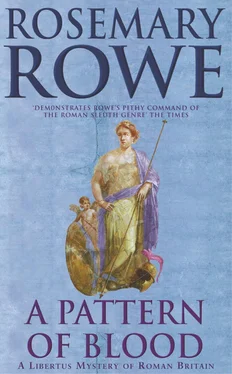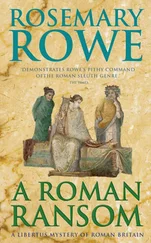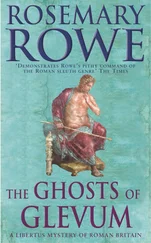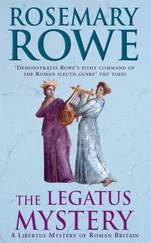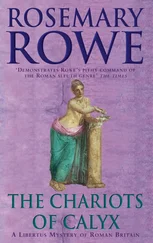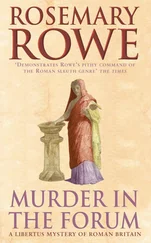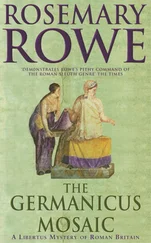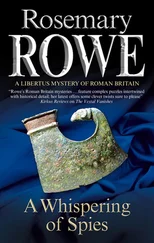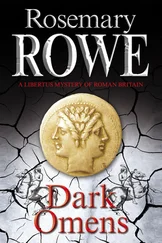Rosemary Rowe - A Pattern of Blood
Здесь есть возможность читать онлайн «Rosemary Rowe - A Pattern of Blood» весь текст электронной книги совершенно бесплатно (целиком полную версию без сокращений). В некоторых случаях можно слушать аудио, скачать через торрент в формате fb2 и присутствует краткое содержание. Год выпуска: 2000, ISBN: 2000, Издательство: Headline, Жанр: Исторический детектив, на английском языке. Описание произведения, (предисловие) а так же отзывы посетителей доступны на портале библиотеки ЛибКат.
- Название:A Pattern of Blood
- Автор:
- Издательство:Headline
- Жанр:
- Год:2000
- ISBN:9781472205063
- Рейтинг книги:4 / 5. Голосов: 1
-
Избранное:Добавить в избранное
- Отзывы:
-
Ваша оценка:
- 80
- 1
- 2
- 3
- 4
- 5
A Pattern of Blood: краткое содержание, описание и аннотация
Предлагаем к чтению аннотацию, описание, краткое содержание или предисловие (зависит от того, что написал сам автор книги «A Pattern of Blood»). Если вы не нашли необходимую информацию о книге — напишите в комментариях, мы постараемся отыскать её.
A Pattern of Blood — читать онлайн бесплатно полную книгу (весь текст) целиком
Ниже представлен текст книги, разбитый по страницам. Система сохранения места последней прочитанной страницы, позволяет с удобством читать онлайн бесплатно книгу «A Pattern of Blood», без необходимости каждый раз заново искать на чём Вы остановились. Поставьте закладку, и сможете в любой момент перейти на страницу, на которой закончили чтение.
Интервал:
Закладка:
A group of toga-ed officials appeared from within the building, some with their staffs of office carried before them by lictors , while a chair was fetched and the presiding magistrate seated himself importantly upon it. As a decurion, Quintus could expect to have proper ceremony attending the opening of his will. The precious scroll was produced — an impressive legal document on fine parchment, sealed with heavy wax — the seals were broken (ceremonially, with the crowd crying ‘ahh!’ at each seal) and the reading commenced.
The will was concise, as far as Roman wills ever are. Quintus had eschewed the common practice of using his will as an opportunity to malign his enemies, and apart from a slighting reference to Lupus, ‘that vain and grotesque parcel of lascivious bones’, there was little in the preamble to delight the crowd. The endowments, too, were simple enough. His debts were first to be paid (cheers from the bystanders, including the fuller and his son whom I had spotted among the audience). Then, a great feast was to be held in the market square (louder cheers), followed by a gladiatorial contest and chariot racing in the arena. (Prolonged cheering, after which many of the audience began to drift away.) A series of substitute legatees was named, in case the prime and secondary heirs refused to inherit, as they sometimes did, and a number of small bequests were made to clientes ‘in remembrance of duty owed’. Manumission for the chief slave and a formal ending of Mutuus’s bond were also granted, although the remaining crowd was visibly less interested in these provisions.
Then came the real business of the day. There was a generous sum for Sollers, together with a small but adequate pension for life. To Julia, Quintus left his country house (I was not aware that he had one), and one third of the fortune. The town house and the rest of the estate went to Maximilian, who was named as principal heir. And then came the real surprise.
‘I appoint my esteemed friend, Marcus Aurelius Septimus, if he will accept the office, to act as legal sponsor to my wife, in all matters of contract and in the courts, on the understanding that he will act only according to her wishes; and she may marry or use her endowment as she will.’
That would please Marcus, I thought. I wondered if he had known of it.
Maximilian had still not put in an appearance. As the crowd began to drift away. I made my way through the remaining bystanders until I reached the basilica steps. Julia saw me and gave me one of her heart-stopping smiles. As I came towards the little party, she reached out a welcoming hand. There were, I noticed, tears glistening in the saffron-lidded eyes.
‘It is a mournful business, is it not? But Quintus has dealt generously with us all. Naming Marcus as my protector was a clever move. It will save me from Flavius. I was afraid he would try to claim jurisdiction over me. And there are a good many public endowments.’
I smiled grimly. ‘But not, I fear, anything about pavements.’
‘Quintus obviously expected to donate that while he lived.’ She turned impulsively to Sollers. ‘We might, don’t you think, commission one all the same? In memory of my husband?’
He looked at her indulgently. ‘Julia, my dear. The fortune is yours. Marcus is notionally your sponsor, but you heard the terms of the will. You are no longer in tutelage, either as a daughter or a wife. You must spend your money as you please. However, since you suggest it, such a gesture would be a gracious one.’
She smiled at me again. ‘Then, Libertus, the commission is yours.’ She seemed to stop and consider. ‘A bold design is best, I think. It will in any case be difficult to see the mosaic through the steam. When the funeral is over, I will speak to your patron about keeping you here a while.’ Julia, it seemed, had little difficulty making decisions, once the chance was offered.
I thanked her gravely, although, of course, without a nominated price such a promise does not constitute a contract — as I have learned before, to my cost. I wondered if Julia knew that. She raised her hand in dismissal, then turned and made her way towards the waiting litter.
Sollers might have followed her, but I detained him. I was delighted by the kindness of her offer, but I had concerns about it. ‘Will there,’ I asked him seriously, ‘be sufficient funds for such an endowment? I should not like the lady to overreach herself for my benefit.’
He laughed. ‘There is no fear of that. Quintus was worth a considerable fortune. Julia was always wealthy, my friend. Now she is very rich indeed.’
‘And Maximilian?’
His face clouded. ‘Maximilian even more so. He will have, of course, to take his father’s place as decurion in due course, but mercifully he cannot seek election until he is twenty-five. Perhaps by then he will have learned some greater discretion.’
‘And you, what will you do now?’
He shook his head. ‘I do not know as yet. Nothing, perhaps, for a little while. Quintus has been most generous to me. Much more than I expected or deserved. Perhaps I will seek a civic appointment. Or perhaps Julia will have a use for me.’
He sounded so forlorn that I was moved to say, suddenly, ‘Have you no idea at all? What was it that the soothsayer foretold?’
He looked at me in surprise.
‘That evening,’ I said, ‘when you were returning from the chariot races. Did she give you no advice?’
He gave me a wry smile. ‘Oh, yes, I had forgotten you were there. It was much as you’d expect. The usual mixture of wild promises and dreadful warnings. I paid no attention to her. I fear the gods, and have a proper respect for omens and the established augurs, but I do not pay much credence to the ramblings of warty old beggar-women who claim to see meaning in a flock of birds. And now, excuse me: I must return to the house. There is much still to do. Do you wish to accompany us?’
The thought of trailing along on foot beside the litters with the slaves while he rode in style with Julia was not appealing. However, I had my excuse to hand. ‘I have not quite finished my enquiries, medicus. I have learned something interesting in the town. Something of great significance. Please give that message to my patron and tell him I will not be long.’
He looked at me sharply, but I offered no more and finally he said, ‘As you wish, citizen. Till later, then.’
He nodded in farewell, and strode to where the litters were waiting. Julia was getting into one of them, assisted by Mutuus, who was helping her into it with assiduous attention, while Julia smiled her thanks.
At that moment, despite his legacy, Sollers did not look a happy man.
Chapter Eighteen
The slaves raised the litters to their shoulders, and, swaying under the weight, moved swiftly out of the forum. I watched them go. It was starting to rain again, and we took shelter under the portico.
Junio looked at me. ‘Further business, you said, master? You want to find that soothsayer?’
I grinned at him. ‘I want to visit the slave market. I still haven’t made any enquiries about Gwellia. But yes, I want to see this soothsayer, before she disappears like the boy from the baths. It appears that she was little better than a beggar. No wonder she was susceptible to Maximilian’s bribe.’ That had surprised me a little at the time. Amateur soothsayers are sometimes crazy, but they are usually sincere.
Junio nodded. ‘No wonder either that Sollers was unimpressed.’
‘I only marvel that he stopped to listen to her at all.’
‘I wonder what she said to him,’ Junio said with a grin. ‘I suppose we can guess what the “dire predictions” were like, since Maximilian was paying her to make them. “Beware the house of the decurion”, no doubt. Or something more mysterious-sounding than that, but meaning the same thing. You know what soothsayers are like.’
Читать дальшеИнтервал:
Закладка:
Похожие книги на «A Pattern of Blood»
Представляем Вашему вниманию похожие книги на «A Pattern of Blood» списком для выбора. Мы отобрали схожую по названию и смыслу литературу в надежде предоставить читателям больше вариантов отыскать новые, интересные, ещё непрочитанные произведения.
Обсуждение, отзывы о книге «A Pattern of Blood» и просто собственные мнения читателей. Оставьте ваши комментарии, напишите, что Вы думаете о произведении, его смысле или главных героях. Укажите что конкретно понравилось, а что нет, и почему Вы так считаете.
